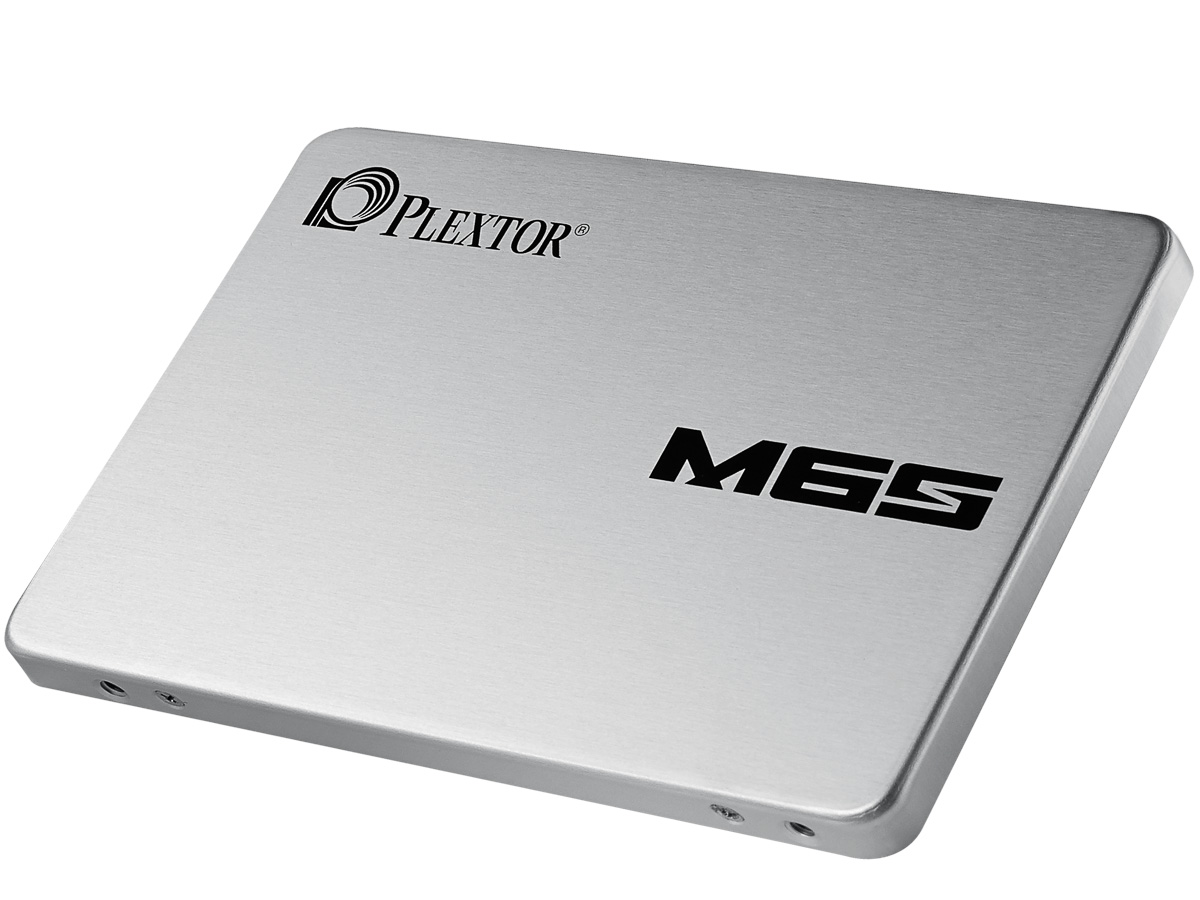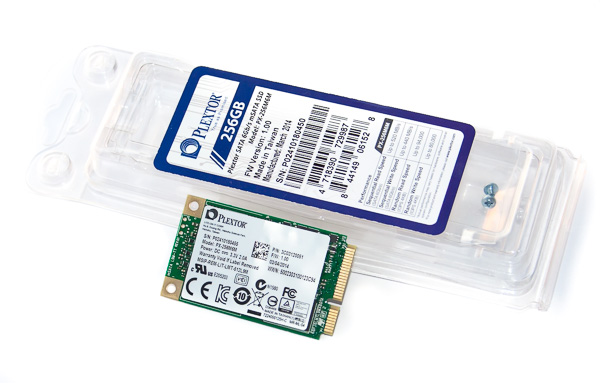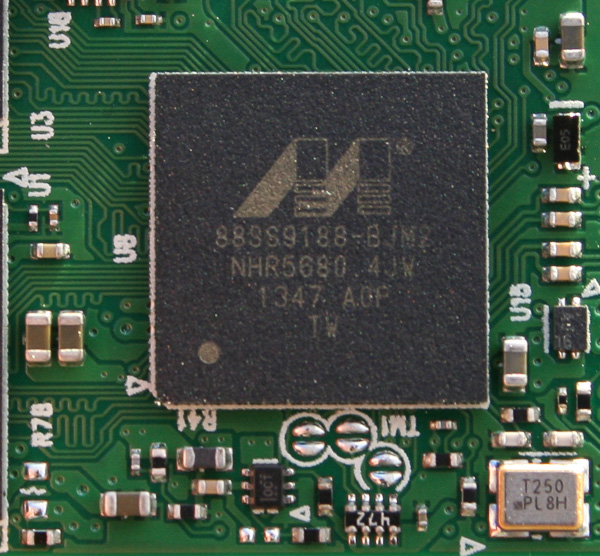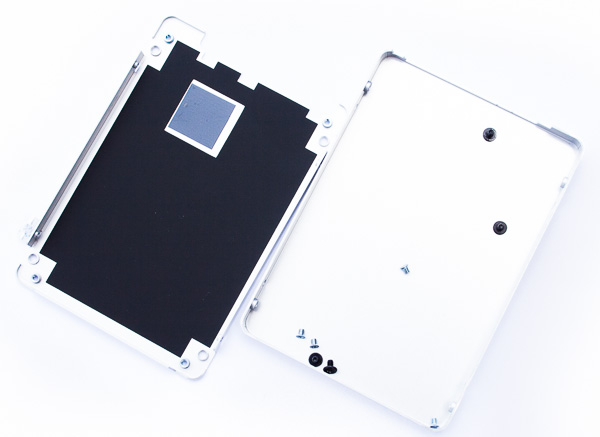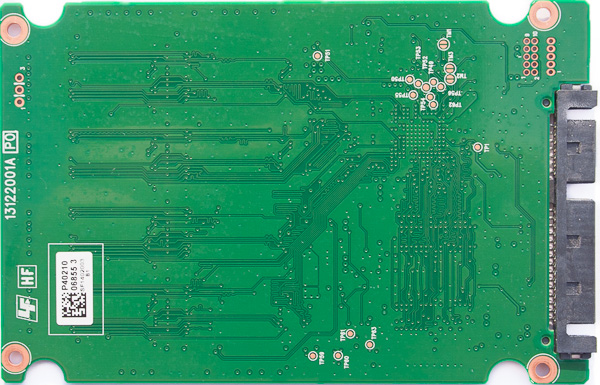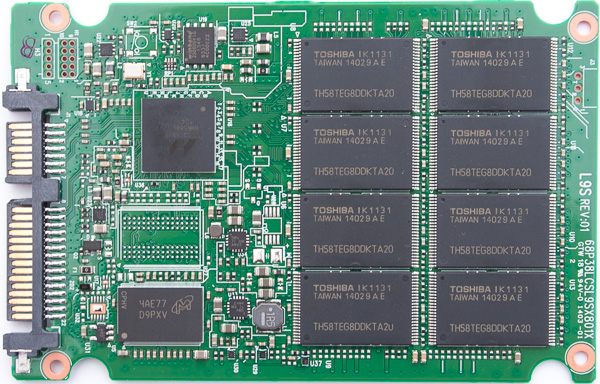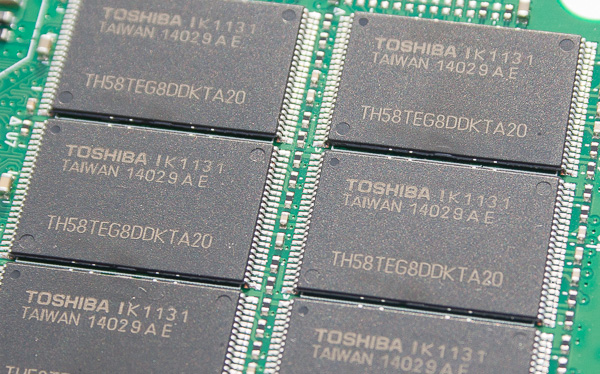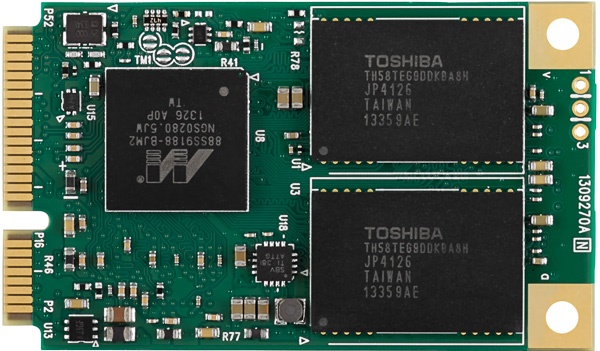Plextor M6S And M6M SSD Review: Revving Another Marvell Engine
Plextor is launching two new SSDs under its M6 banner. The M6S and M6M lean on Toshiba's A19 flash and Marvell's updated 9188 silicon. Together, both components (plus some custom firmware work) should augment value and speed in a couple of form factors.
Meet The M6S, M6M, And Another Marvell Controller
Update: Plextor contacted us to let us know that its suggested pricing was revised to reflect our feedback, making the M6S and M6M more price-competitive. We've updated the table below accordingly. The M6S and M6M are not yet available, but drives should arrive at retailers within the next two weeks wearing lower price tags.
If we're selling solid-state storage, we have to be smart about it. Regardless of what we decide to charge, many months later those drives won't move in the same quantities unless we start discounting. That means we need to build new models with economy in mind, the kind of economy that lets us respond to market pressures, cut prices when necessary, and still make some money.
And that's Plextor's approach to the M6S and M6M, its newest mainstream offerings. Packing yet another fresh Marvell controller (the 88SS9188), Plextor adds Toshiba's A19 flash, creating a potent combination. In fact, the company has quite a bit of experience marrying Marvell and Toshiba components over the past four years.
Rather than bringing multiple form factors under one aegis, Plextor carries two branded lines. The M6S and M6M (that last M meaning mSATA) are basically identical, featuring similar components and specifications. There will also be a M6 Pro, and it'll likely boast the same controller found in Crucial's M550. The M6S and M6M are aimed at enabling value, though. Previously, Plextor offered the premium M5 Pro, a mainstream M5S with Micron NAND, and the mSATA-based M5M, so we're on a fairly predictable path.
As the entire industry gradually adopts NAND manufactured using more advanced lithography, SSDs evolve. Plextor continues leaning on 19 nm flash. But Toshiba's A19 process incurs a relatively modest performance hit in the interest of doubling density to 128 Gb. Unlike Micron's first foray into 128 Gb dies, Toshiba retains most of the speed high-end Toggle-mode-based drives are known for.
Along with more economical flash, Plextor adopts Marvell's new 88SS9188 controller. The 9188 is built on a more advanced fabrication process in TSMC's foundries, helping Marvell shove its logic into a smaller footprint. That more compact package emphasizes lower power, and as a result, the M6S and M6M is well-suited to the Ultrabook market, which requires Device Sleep (DevSlp) support to enable connected standby mode. The processor also facilitates 128-bit ECC, considered mandatory for greater control of the latest NAND technologies more prone to errors.
Wrap all of that up in a three-year warranty, and you have the basis for a potentially awesome mainstream SSD, providing the denser flash doesn't handicap performance. This one could go either way, folks. Companies like Plextor have to play the hand they're dealt, and that doesn't always translate into perfect harmony between components. Some of the latest drives to hit our lab faltered in corner cases, while delivering snappy performance otherwise. Before we get into the benchmark data, though, let's dissect the array of models that Plextor plans to ship.
Get Tom's Hardware's best news and in-depth reviews, straight to your inbox.
| Plextor M6S And M6M SSDs | |||||||
|---|---|---|---|---|---|---|---|
| Row 0 - Cell 0 | 64 GB M6M | 128 GB M6M | 256 GB M6M | 512 GB M6M | 128 GB M6S | 256 GB M6S | 512 GB M6S |
| Form Factor | mSATA | 2.5", 7 mm z-height | |||||
| Controller | Marvell 88SS9188-BJM2, SATA 3.1-compliant | ||||||
| NAND | Toshiba A19 Toggle-mode DDR, 19 nm, 128 Gb Die | ||||||
| Dies | 4 | 8 | 16 | 32 | 8 | 16 | 32 |
| DRAM | 128 MB | 256 MB | 512 MB | 768 MB | 256 MB | 512 MB | 768 MB |
| Sequential Read/Write (MB/s) | 520 / 160 | 520 / 340 | 520 / 440 | 520 / 440 | 520 / 300 | 520 / 420 | 520 / 440 |
| Random 4 KB IOPS | 73K / 42K | 90K / 76K | 94K / 80K | 94K / 80K | 88K / 75K | 90K / 80K | 94K / 80K |
| MSRP | $75 | $110 | $180 | $420 | $105 | $170 | $400 |
| Other Features | DevSlp, 128-bit ECC, 256-bit AES | ||||||
| Warranty | Three years |
There are seven new M6 models. Three are 2.5" SATA-based offerings, from 128 to 512 GB. Four fit into the mSATA form factor, and span the same capacities (the fourth M6M comes equipped with 64 GB). The company's suggested prices are fairly high, though retail prices shouldn't land so close to $1/GB. But because the drives aren't available yet, we can't really have the value talk yet. That'll have to wait for the next installation of our Best SSDs For The Money column.
Plextor isn't doing a 1 TB model this time around, and I suspect that there are a couple of good reasons why. Mainly, there's the aforementioned M6 Pro. Enthusiasts are far more likely to value a high-capacity SSD, and the Marvell 88SS9189 processor might simply be a better match to that much flash. We actually haven't seen Marvell's flagship matched up to Toggle-mode NAND yet, but the combination could be killer.
We're also not getting an M.2-based version of this drive, though Plextor surely has something in mind for that form factor as well.
Inside The Plextor M6S
Plextor retains the same 2.5" chassis as the M5 Pro. It's delicate, but good-looking. And the light alloy means no additional heft is added to laptop installations. The bottom half of the enclosure is lined with insulation to protect the PCB, though the same thing could have been achieved with plastic casing. I prefer metal for its reassuring feeling of structural integrity, but in a mobile environment, there's something to be said for weight savings.
The back of this 256 GB model is bare...
...instead, all of the components are crammed onto one side of the M6S. Marvell's 88SS9188 is placed just above 512 MB of LPDDR3 from Micron, under blank space for the 512 GB version's extra cache. Toshiba NAND dominates the PCB, and you'll find eight packages listed as TH58TEG8DDKTA20. Each contains two 128 Gb dies, totaling 32 GB.
The new processor helps Plextor hit 2 mW in the low-power sleep state known as DevSlp. Intel's Ultrabook specification requires that SSDs resume from DevSlp in 50 ms, which is a feat that older DevSlp-capable controllers couldn't perform reliably.
Plextor's marketing material repeatedly refers to Marvell's controllers as server-grade, though it's not clear what that means. We can, however, say that the company's firmware is molded and sculpted as carefully as you might cultivate a bonsai tree. Plextor is notorious for putting a lot of work into its regularly-updated software, often enhancing performance.
The M6M
The M6M only has four placements, so our 256 GB sample must employ a quartet of 64 GB packages. And because we also know that these are 128 Gb dies, it follows that there are four per package.
Current page: Meet The M6S, M6M, And Another Marvell Controller
Next Page How We're Testing Plextor's M6S And M6M-
bjaminnyc I know there are slight performance differences between models and manufacturers, for the home user the discrepancies matter very little other than lifespan. It all comes down to price point for non-commercial application, not sure where this really fits in the product stack.Reply -
WithoutWeakness The Marvell 88SS9188 controller in the M6S is only capable of addressing 4 NAND channels at a time whereas the 88SS9187 (Crucial M500, Plextor M5Pro) and 88SS9189 (Crucial M550) are capable of addressing a full 8 channels. I would expect the Plextor M6Pro to use the newer 88SS9189 found in the M550 to be able to address 8 channels of NAND and support up to 1TB drives using 128Gbit NAND.Reply -
Ipatinga Clean looks... ok update for the M5S... here hopping M6P will have something on its sleeve performance wise. I liked the Plextor software (its like a bonus for some people... ).Reply
But I still have the Samsung 840 EVO on my list, after all, when the dust settles, they both perform very well in a notebook for a regular joe, but the EVO has the price to beat.
Since my Crucial m4 is not dead... I will wait... mainly for prices to go even lower so I can get a higher capacity model instead of the best of the best. -
cryan Reply13069953 said:The Marvell 88SS9188 controller in the M6S is only capable of addressing 4 NAND channels at a time whereas the 88SS9187 (Crucial M500, Plextor M5Pro) and 88SS9189 (Crucial M550) are capable of addressing a full 8 channels. I would expect the Plextor M6Pro to use the newer 88SS9189 found in the M550 to be able to address 8 channels of NAND and support up to 1TB drives using 128Gbit NAND.
So we weren't able to get confirmation from Plextor or Marvell, but it's probably the case that the 9188 is a cut down four channel version of the 9189. It's all the more annoying, because this is the third review in a row with new Marvell silicon but no actual info from Marvell.
We have a pretty good idea of this from looking at the 9174 4 channel used in the UltraPlus vs the 8 channel 9175 used in.... pretty much everything else ever made... that the 9188 is a four channel version of the 9189. But we don't know how many CEs per channel it has, or much else for that matter.
However, we do know Plextor's M6 Pro will have a 1 TB version, also with A19 flash. Plextor reps told me as much at the 2013 Flash Memory Summit. That was last August though, so I think there have been some delays -- either with Marvell, Toshiba, or both.
Regards,
Christopher Ryan -
cryan Reply13071551 said:Why not compare the Samsung EVO 840?
If you're referring to the 128 KB sequential and 4 KB random performance, I'm trying to keep those clean. I'd much rather throw down on matchups like this in more important metrics. However, with TRIM testing out this go around, the EVO v. M6 angle got downplayed. It's an oversight.
Regards,
Christopher Ryan
-
cryan Reply13073455 said:I really wish write speeds would actually make a jump.
For sequential writes, you can't do much better than 500 MB/s. The fastest M6M/M6S hits 440 MB/s, and so there just isn't much room left to grow unless you switch to PCIe-based storage or add a couple drives in RAID.
Regards,
Christopher Ryan
-
michaelrhaley Great article! I'd like to see a summary comparison of your top ten drives listed in Tom's best SSDs for the money using your new benchmark. Most important is your omission of Samsung 256G Pro which has been your leader for 8 months cited now as "face meltingly fast". Any performance benchmark must include the Samsung leader. Love to see this right away from you!Reply
Sincerely, Michael -
kalmquist Currently, the 128GB M6S is selling for $100 on Newegg, the 256GB M6S is selling for $165. The 512GB M6S is not listed.Reply
Hard to justify buying these over the Samsung 840 EVO ($85 and $154). Actually, for most uses my first thought would be the Crucial M500 ($75 and $120). The M500 doesn't win on either performance or power consumption, but it is good enough that these will not be major issues for the typical user.
